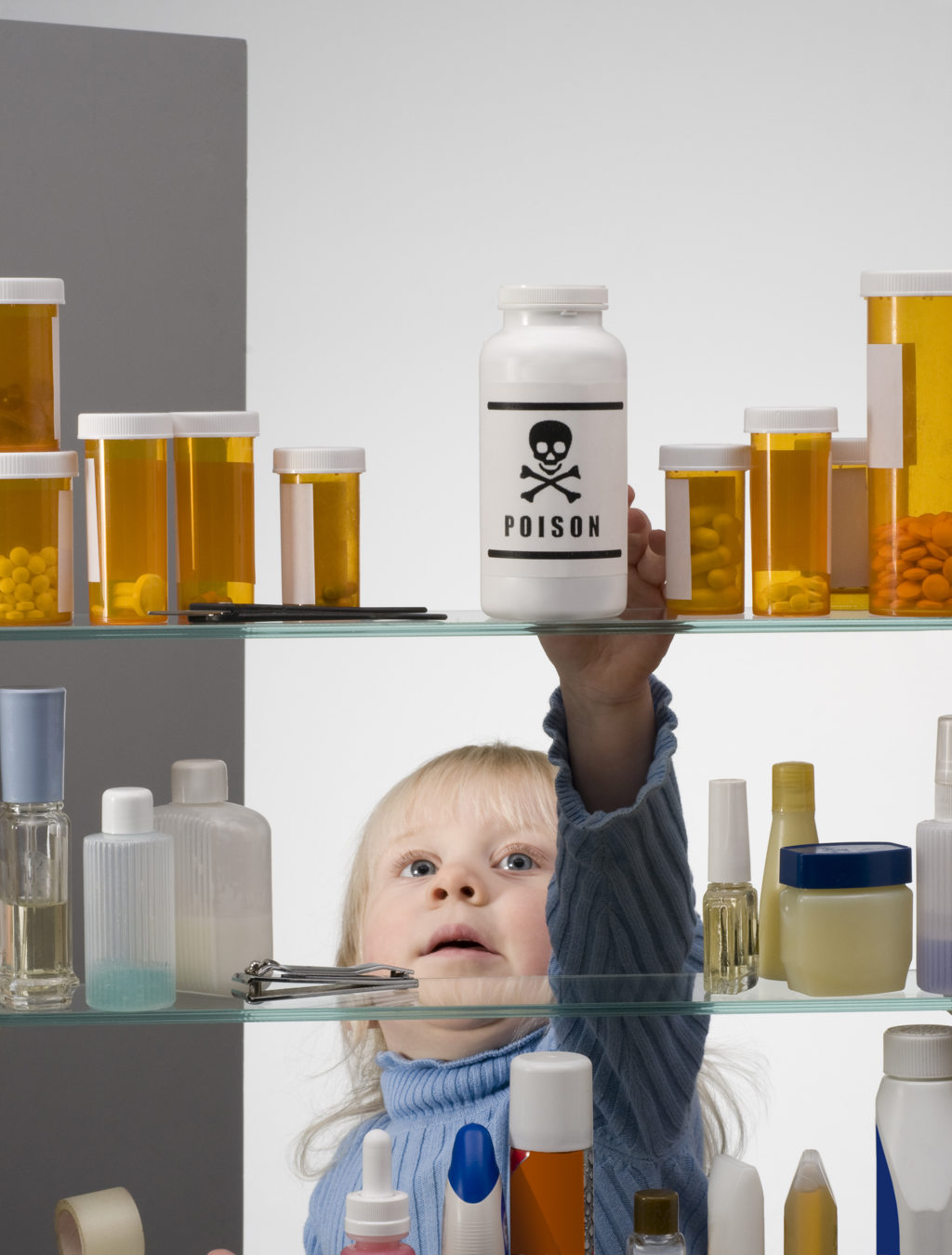Four steps you can take to prevent accidental poisoning
Nearly nine out of 10 accidental poisonings happen in the home, and approximately three million people have contact with a poisonous substance every year. Many of those are children. In fact, 61,500 children were treated in emergency rooms in 2020 because of accidental poisonings, and more than 30 children under the age of five die in the U.S. every year because of it.
“Ingestion of even one pill of some medications can have serious consequences for children,” said Sundeep Ekbote, MD, Penn Highlands Southwest Regional Medical Director of Emergency Medicine.
Follow these four guidelines to keep children — and anyone in your home — safe from poisonous substances.

1: Keep cleaning products and medications out of reach.
All potentially poisonous substances should be stored in their original packaging in either locked cabinets or out of sight and out of reach of children. Cleaning products, medications, paint, pesticides and laundry products are among the most common poisonous household products that children encounter.
If you have young children, use traditional liquid or powder laundry detergents instead of detergent packets.
2: Don’t mix cleaning products together.
Mixing cleaning products can produce extremely dangerous toxins. During the pandemic, when cleaning supplies were hard to find, there were reports of people mixing bleach and vinegar together to disinfect surfaces, which creates chlorine gas.
“Chlorine gas poisoning causes respiratory symptoms and can damage the circulatory system,” said Shaun Sheehan, DO, Emergency Services and Transfer Center Medical Director for Penn Highlands Healthcare. “It can be lethal, and there is no cure.”
The CDC advises against mixing together chemicals or cleaning products, and individual substances should be stored in safe places out of the reach of children.
3: Keep medications with safety caps on.
Children may not like taking medicine, but never refer to medicine as candy. In addition, you should keep all medications in their original containers with the safety caps. Be aware, however, that safety caps are child resistant, not child proof.
4: Read labels before using.
Kids grow fast. Every time you give a child medicine, check the label to make sure you give the correct dosage based on their age and weight. And if you’re using liquid medications, use the cup or spoon that came with it. Unlike a kitchen spoon or cup, the dosage device that comes with the medicine is specifically made for administering the correct dosage.
Penn Highlands Healthcare provides emergency care across more than 15 counties in central Pennsylvania. If you think your condition requires immediate treatment, call 911 or get to the nearest emergency room.
